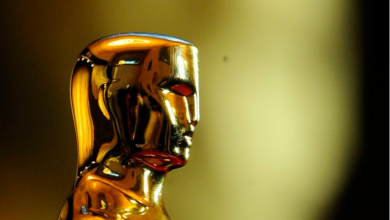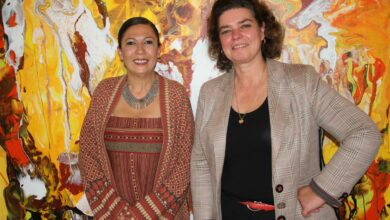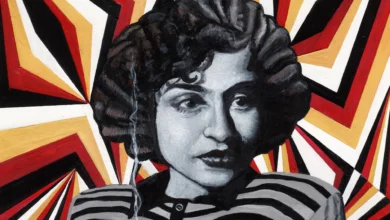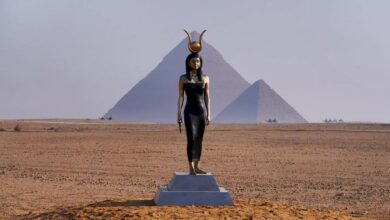20 years after the Bhopal gas tragedy-–the worst industrial accident in history—a Dow Chemical Company spokesman announced live on BBC World that the company accepts responsibility for the accident and has set up a multi-billion dollar plan to compensate the victims. In December 1984, toxic gas leaked from a Union Carbide pesticide plant-–currently a Dow Chemical subsidiary–in the city of Bhopal, India, killing thousands of people and resulting in chronic health issues for about half a million local people. People rejoiced upon hearing the news. However, in the following two hours the share price of Dow Chemical fell by 3.4 percent.
A retraction was later issued by BBC World, apologizing for the prank played by two activists Mike Bonanno and Andy Bichlbaum – also known as the Yes Men. Bonanno and Bichlbaum had set up a parody website for the Dow Chemical Company and were thus contacted by BBC World to communicate the company’s position on the Bhopal accident. Through their prank, the Yes Men meant to re-illuminate the Bhopal tragedy and the fact that victims were compensated with no more than US$500 after 20 years. They did not, however, expect the company to lose US$2 billion of its capital within two hours as shareholders immediately sold Dow Chemical stock upon hearing of its compensation plan. It seemed to the Yes Men that people punish companies for trying to do the right thing.
The Bhopal prank was the opening scene of The Yes Men Fix the World movie, which was screened on 22 November at the Rawabet theatre in Downtown as part of the 2010 Freedom to Create festivities held in Cairo. The documentary movie, which won the 2009 Berlin Film Festival Award, follows the two protagonists as they impersonate representatives of some of the world’s largest corporations and international institutions at business conventions. They make shocking statements and absurd presentations hoping to encourage the business community to reflect on its practices.
Invited to speak on behalf of the World Trade Organization (WTO) at the International Legal Studies Conference in Salzburg, Austria, the Yes Men proposed a new concept for “acceptable risk.” Since business risks are inevitable, possible public harm should be measured against profitability. When profitability outweighs the possible number of lost lives, businesses end up with an acceptable “golden skeleton” that supersedes ethical concerns. They even presented a golden skeleton mascot, named Gilda, at the convention. To their disappointment, the attendees were interested in the presentation and one person even described their business approach as “refreshing.”
The reaction of Dow Chemical’s shareholders and the Salzburg conference attendees suggest the control certain ideologies have over people’s actions on conscious and subconscious levels. Since the 1980s, the Chicago School of economic thought as well as a number of think tanks have been advocating free-market policies and the transfer of power from public to private institutions. The manifestations of neo-liberalism have been obvious in the economic policies of the US government, the WTO and International Monetary Fund (IMF) with ramifications on political, social and cultural life in various countries.
In 2007, the Yes Men delivered a speech at Canada’s largest oil conference in Calgray, acting as representatives of global energy leader Exxon Mobil. The two activists presented a new technology, Vivoleum, which would secure energy sources in the future, capitalizing on the problem of global warming. Vivolium, as the Yes Men named the technology, is derived from the Italian word “viva” meaning life. It uses the bodies of dead people–mostly those who are expected to die due to future climate disasters–to generate energy.
The Yes Men even handed out "commemorative candles," which they claimed was made of the flesh of a terminally ill Exxon janitor, to the conference attendees. Only when faced with a stark representation of possible harm brought about by the practices of the energy industry–a physical human candle–did the attendees shudder. The extent to which the Exxon Mobil presentation succeeded in triggering self-critique among energy industry representatives remains debatable. However, they did request that the Yes Men be removed from the panel.
Throughout the movie, the Yes Men seek to offer viewers the ability to imagine a different future; one that is often described as unrealistic or Utopian given current economic and political policies. In 2008, they collaborated with a group of activists to print and distribute 100,000 copies of a spoof New York Times issue. The issue, which was dated in the future (4 July 2009) read:
Iraq War End
Troops Return Immediately: Operation Iraqi Freedom and Operation Enduring Freedom were brought to an unceremonious close today.
Court Indicts Bush on High Treason Charge
WASHINGTON (AP) — George W. Bush, the 43rd President of the United States, was indicted Monday on charges of high treason. The charges, filed by Attorney General Russ Feingold late in the evening, allege that Mr. Bush, knowing full well that Iraq possessed no weapons of mass destruction, falsified information in order to pursue the disastrous Iraq War.
United Nations Unanimously Passes Weapons Ban
NEW YORK – A spontaneous celebration erupted in the U.N. General Assembly after representatives of 192 member states unanimously ratified the Comprehensive Arms Ban Treaty. The treaty outlaws possession, production and trade of military equipment ranging from small arms to nuclear warheads.
The Yes Men’s interventions try to offer people a chance to rid themselves of ideologies that make the status-quo seem the only possible option.
Freedom to Create is an international initiative that started in 2006 to foster various forms of creative expression as a means of building strong foundations for economic, political and cultural development. This year, Egypt is hosting the Freedom to Create festivities for a whole month:
- Wednesday 24 November 2010: Freedom to Create held a forum titled Creative Empowerment for Women at the American University in Cairo’s New Campus. Five distinguished guests presented their experiences, including Egypt’s former First Lady and founder of the Arab African Women’s League, Mrs. Jehan El Sadat; Egyptian champion of women’s rights and free speech, Dalia Ziada; and professor of race and gender issues and constitutional law at UCLA School of Law and Columbia Law School, Kimberlé Crenshaw. This was followed by a broad discussion addressing creativity and female empowerment.
- Thursday 25 November 2010: The 2010 Freedom to Create Exhibition opened at the Cairo Opera House. The exhibition runs until 11 December 2010 and presents a selection of artwork with a social cause. The exhibition seeks to provide artists with an international platform to promote themselves and the social issues they support. It was exhibited earlier this year at the National Gallery of Zimbabwe in Harare and the Queen’s Palace complex in the Gardens of Babur in Kabul, Afghanistan.
- Friday 26 November 2010: Freedom to Create Awards Ceremony at 7 p.m. at the Salah El Din Citadel. The Freedom to Create Prize celebrates artists who use their talents to promote social justice and build social foundations. Each year US$125,000 are awarded across three categories: the Main Prize, the Youth Prize and the Imprisoned Artist Prize. The ceremony will be hosted by Egyptian actor and regional Goodwill Ambassador for the Joint United Nations Program on HIV/AIDS in the Middle East and North Africa, Amr Waked, and British television presenter and journalist Ms. Femi Oke. The ceremony will include performances by Egyptian popular singer Hakim, Egyptian hip hop artists Arabian Knightz, Egyptian Folk singer Donia Massoud and Namibian artist Eric Sel.




